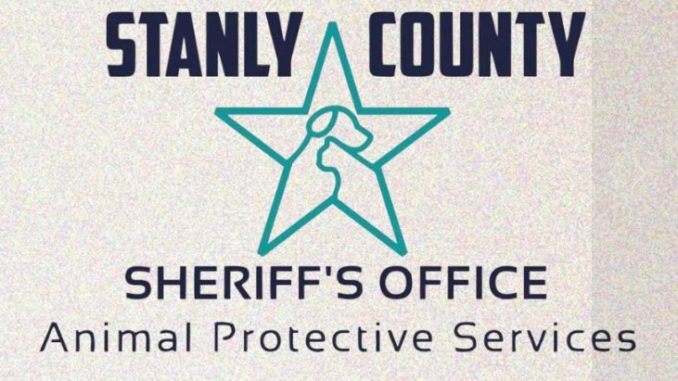
ALBEMARLE — Multiple issues regarding the status of Stanly County Animal Protective Services (SCAPS) were discussed at the recent Stanly County Board of Commissioners meeting this month.
The topic was included in the Sept. 6 meeting agenda by Commissioner Peter Asciutto, who wanted to clear the air with the public on recent social media posts concerning adoptions, euthanasia, and staffing at the local animal control agency.
SCAPS — under the management of Sheriff Jeff Crisco and the Stanly County Sheriff’s Office since 2020 — will now be looking to hire a new head director to be the agency’s only full-time worker within the existing setup.
Now-former SCAPS Director Jana Avilés announced her resignation from the position in a social media post on Sept. 9: “Today was my last day as Director of Stanly County Animal Protective Services. Over the last two years, I have had the pleasure of working alongside some pretty incredible people, and we made an enormous difference in the lives of the animals and people of Stanly County.”
“I don’t know what the future holds, but I do know that my work in animal welfare is not done,” Avilés added. “Thank you to Stanly County Sheriff’s Office, Karen, our deputies, fosters, transporters, Rescue Partners, adopters, sponsors, and supporters for making my time at SCAPS a success. I am so beyond thankful for all of you.”
Avilés’ resignation arrived just weeks after the Animal Welfare Section of the N.C. Department of Agriculture and Consumer Services inspected SCAPS and found areas that needed improvement due to a lack of kennel staff and an absence of adequate funding, according to an official department report.
In late August, social media rumors arose hypothesizing that SCAPS would implement a new policy requiring animals to be euthanized after being in the facility for 30 days or more — a rumor that was refuted by the sheriff’s office in a response post.
“Regarding the comment that the shelter will be going backwards and become a “kill shelter,” I assure you that this will not happen,” the post stated. “The entire staff at the animal shelter, as well as this administration, has worked extremely hard to obtain a better than 95% survival rate. We are not going to do anything to jeopardize this and will continue to work toward improving processes with the resources we have available to us.”
Despite the direct response by the sheriff’s office, discussion of the SCAPS situation carried into the recent commissioners’ meeting, where a public comment session was held; the topic of staffing was brought up in relation with the current structure involving sheriff’s office deputies working at the shelter.
“I’m confident that data will show at least a third of the calls the five deputies assigned to the shelter are now answering from the shelter are unrelated to animal compliance,” Kathryn Hinkle Russell, a SCAPS volunteer, told commissioners. “The SCAPS community would like to see three full-time shelter staff who have notable background and experience — with one of these three being our current director — given an offer to stay and a raise.”
Ascuitto stated that he has heard conflicting accounts of the sheriff’s office’s current arrangement and workload at SCAPS: “I talk to people, and they say the deputies are not there in the afternoon to feed and do as much of the paperwork, but the Sheriff’s Office says that they’re there every morning and pretty much every evening, Monday to Friday, doing those tasks.”
Commissioner Bill Lawhon reiterated that due to the chain-of-command structure that gives the sheriff’s office jurisdiction over SCAPS, “it’s not our job to make management decisions for the sheriff” and that the current funding amount would not be altered. Clarifying that any changes for SCAPS would need to be directly implemented through the sheriff’s office, the commissioners declined to vote on a resolution.
The board’s next meeting is scheduled for Oct. 3 at 6 p.m. at Stanly Commons.
